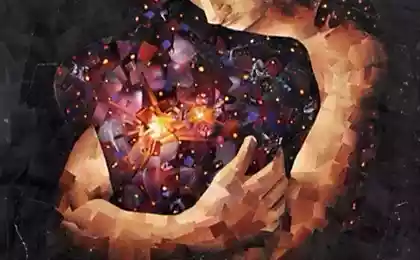223
How to Stop Missing People Who Have Left Your Life
It always hurts when someone important disappears from your life. But you can calm your feelings and learn to live in a new way.

The path to healing can be long, but each step brings us closer to a new chapter in life.
Losing a significant person—whether it’s because of a breakup, a breakup, a death, or simply because your paths parted—is one of the most painful trials life offers us. The longing that remains after the departure of a loved one sometimes seems endless. It paints everyday life in gray tones and makes you return to the past again and again.
However, research in psychology and neuroscience shows that the human brain and psyche have an amazing ability to adapt and recover. We can not only survive the loss, but also find new meaning, rethink our lives and even use this experience for personal growth.
Why do we miss people who have passed so much?
Before we talk about how to stop being bored, let’s understand the nature of this feeling. Evolutionary psychologists argue that longing for departed people is not just an emotional response, but a survival mechanism, fixed by thousands of years of evolution.
Social pain activates the same areas of the brain as physical pain. This is not an accident, but an evolutionary mechanism that helped our ancestors survive in the group, explains neuropsychologist Naomi Eisenberger of the University of California, author of research on social pain.
When we lose a loved one, the following processes occur in our brain:
- The level of oxytocin, the hormone of attachment and trust, decreases
- Increases the activity of the amygdala, responsible for processing emotions of fear and anxiety
- Reduced activation of the brain reward system
- Normal levels of serotonin and dopamine are disrupted
Stages of Loss: Know Your Enemy
Psychologist Elizabeth Kubler-Ross identified five stages of grief, which in one way or another goes through everyone who has lost a loved one. This model applies not only to loss due to death, but also to other forms of relationship loss.
The Five Stages of Grief in Kubler-Ross:
- Denial: "That can't be," "That's some kind of mistake."
- Anger: “Why did this happen to me?” and “Who is to blame?”
- Trading: "If only I could fix it," "If I'd done it differently then."
- Depression: “Nothing makes sense anymore,” “I’ll never get over it.”
- Adoption: “I accept what happened,” “I’m ready to move on.”
It is important to understand that these stages do not always follow each other in strict order. A person may jump between them, return to previous stages, or go through several stages simultaneously. Not everyone goes through all five stages. The individual way of experiencing loss is as unique as the relationship itself.
Modern research in the field of psychology shows that it is important not just to “experience” these stages, but to integrate the experience of loss into your life history, find its place and meaning in the context of your life.
10 Practical Ways to Stop Being Bored

Self-knowledge and reflection are important tools for healing emotional wounds
Now that we understand the psychological mechanisms of longing, let’s move on to concrete practical recommendations that will help to cope with this feeling and start living in a new way.
1. Recognize your feelings and give them space.
The first and most important step is recognizing how you feel. Attempts to suppress or ignore emotions usually result in them returning with a vengeance at the most inopportune moment.
Practical exercise: Set aside 15-20 minutes a day to “meet” your feelings. Sit in a quiet place, close your eyes and allow yourself to fully feel the anguish, pain, anger, or any other emotion associated with loss. Don’t judge yourself for these feelings, just watch them as if you were an outside observer. After this time, say to yourself, “I got to know my feelings today, and now I can let them go until tomorrow.”
2. Practice awareness and presence in the present
Studies show that mindfulness practice (mindfulness) effectively reduces the symptoms of depression and anxiety associated with loss. When we miss a departed person, our consciousness is stuck either in the past (memories) or in the future (fantasies of a possible reunion).
5-4-3-2-1 technique: This technique will help you quickly return to the present moment. Name 5 things you see, 4 things you can touch, 3 sounds you hear, 2 smells you feel, and 1 taste. This practice instantly brings you back to the present moment and distracts you from thinking about the past.
3. Transform your relationship, not break it completely.
Modern psychology says that we don’t have to “let go” completely. Instead, we can transform our relationship with them, find a new way to engage with their memory and legacy in our lives.
The method of “internal dialogue”: Imagine that you can talk to a departed person. What would you like to tell him? What would he say to you? Write down this dialogue. This exercise helps to achieve emotional completion and transform relationships.
4. Create farewell and transition rituals
Rituals play an important role in human culture, helping us to experience important life transitions. Creating a personal farewell ritual can be a powerful tool for recycling loss.
Ideas for rituals: Write a letter to a departed person and burn it, letting go of your feelings along with the smoke. Plant a tree or flower to commemorate your relationship. Create a collage of photos that symbolize your relationship, and then consciously hang it on the wall or put it in a special memory box.
5. Redirect the attachment energy
Psychotherapists note that the energy of attachment and love needs an outlet. If it can no longer be directed at a departed person, it is important to find new uses for it.
Practical steps: Direct your care to those who are still around you - family, friends, pets. Volunteer – helping others gives you a sense of meaning and connection. Start a project you’ve been putting off for a long time – creativity and creativity are powerful channels for transforming emotional energy.
6. Learn the technique of "radical acceptance"
The concept of “radical acceptance”, developed as part of dialectical behavioral therapy, proposes to fully accept reality as it is, without resistance or struggle.
Affirmations for radical adoption: Repeat to yourself every day: “I accept that this relationship is over, even if I don’t like it,” “I can’t change the past, but I can choose how to live on,” “Pain is part of my experience, but it doesn’t define me completely.”
7. Use the technique of temporarily limiting sadness

Creativity helps transform complex emotions into something beautiful and meaningful.
Cognitive behavioral therapy offers a “limited worry time” method that can be adapted to work with longing.
How to practice: Set aside a certain time per day (for example, 30 minutes) when you allow yourself to be completely immersed in longing and memories. When that time is up, say to yourself, “Now I’m going back to my normal life, and I’ll return to those feelings tomorrow at the same time.” If thoughts of loss occur at another time, remind yourself, “I have a special time for these feelings, now I will focus on the present moment.”
8. Keep a journal of gratitude for relationships
Psychological studies show that the practice of gratitude significantly improves emotional state and helps to rethink even painful events in a positive way.
Practice: Keep a special diary and write down one thing in it every day, for which you are grateful to the departed person or your relationship. It could be the lessons you learned, the happy moments you shared, or the qualities he helped you develop. This approach helps transform the pain of loss into a sense of gratitude and appreciation for the value of past experiences.
9. Create new neural connections through new experiences
Neuroscientists claim that the brain is able to create new neural connections throughout life (neuroplasticity). Forming new experiences and experiences helps to literally “reprogram” the brain, creating an alternative to the old thought patterns associated with loss.
Specific steps: Start learning a new skill or hobby that requires full attention. Travel to new places that have nothing to do with the memory of the deceased. Meet new people through interest groups, courses or volunteering. Each new experience creates new neural pathways in the brain that over time become stronger than the old ones associated with longing and loss.
10. Seek professional help when getting stuck
If the yearning does not decrease over time or becomes so intense that it interferes with normal life, it is important to seek professional help. Modern psychotherapy offers many effective approaches to dealing with loss and grief.
Asking for help is not a sign of weakness, but a sign of wisdom and self-care. Some losses are so deep that it is extremely difficult to cope with them on your own. Professional support can greatly speed up the healing process.
When does longing become pathological?
It is important to distinguish the normal process of experiencing loss from pathological grief, which requires professional intervention. Here are signs that longing has turned into a pathological condition:
- Intense longing does not decrease even a year after the loss
- Thoughts of self-harm or suicide
- Complete inability to function in everyday life
- Alcohol or drug abuse as a way to manage pain
- Complete isolation from other people
- Feeling that life has completely lost meaning
A new chapter in your life
Missing people is a natural part of the human experience. Our ability to form deep connections with others makes us vulnerable to the pain of loss, but also gives us the most precious moments of life.
Stop being bored doesn’t mean forgetting a person or devaluing what you shared. It means integrating the experience of loss into your life story, finding its place and meaning, and then opening a new chapter in your life.
As Carl Jung once said, “I am not what happened to me.” I am what I have decided to become.” Losing meaningful relationships is a challenge, but also an opportunity for deep personal growth, self-discovery, and transformation.
Remember, your ability to love and form deep bonds did not disappear with the person who passed away. This ability is still with you, and in time you will be able to open your heart again to new meaningful relationships, enriched by the experience of the past, but not constrained by it.
Glossary of terms
Neuroplasticity is the ability of the brain to change its structure and function throughout life in response to experience, learning, and trauma.
Radical acceptance is a concept from dialectical behavioral therapy, meaning the full acceptance of reality as it is, without resistance, even if it is painful.
Pathological grief is a condition in which the process of experiencing loss is delayed, becomes excessively intense and interferes with the normal functioning of a person.
Mindfulness is the practice of focusing on the present moment without judging the thoughts and feelings that arise.
Cognitive behavioral therapy (CBT) is a psychotherapeutic approach aimed at changing dysfunctional thoughts and behaviors to improve emotional state.
EMDR (Eye Movement Desensitization and Processing) is a psychotherapeutic technique used to treat traumatic memories through bilateral stimulation.
Social pain is an emotional response to social rejection or loss that activates the same areas of the brain as physical pain.
The ritual of transition is a symbolic action that helps a person psychologically and emotionally move from one state of life to another.























